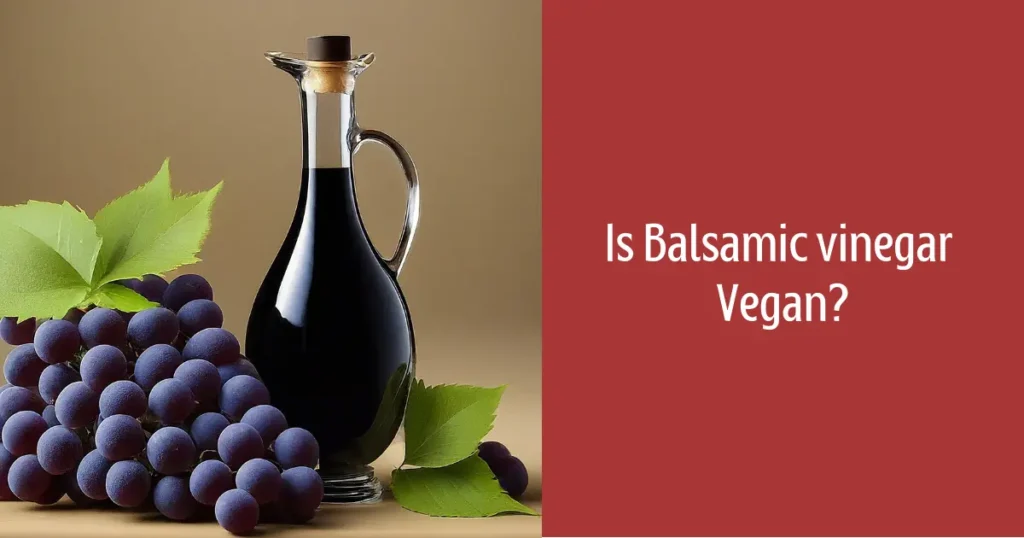Ice cream has always been a universal comfort food. In recent years, vegan ice cream has gained immense popularity, especially among people who follow plant-based diets or have lactose intolerance. But when you scoop into this dairy-free delight, an important question arises: Is vegan ice cream healthy? Yes, vegan ice cream can be healthy, but it depends on the ingredients and sugar content. Let’s dive deep into what makes vegan ice cream a healthier or not-so-healthy option.
What is Vegan Ice Cream?
Vegan ice cream is a plant-based alternative to traditional ice cream. Unlike its dairy counterpart, it excludes milk, cream, and other animal-derived products. Instead, it relies on plant-based milk and natural ingredients for its creamy texture and delicious flavors.
Common Ingredients in Vegan Ice Cream
To understand its health profile, you need to know what goes into vegan ice cream. Here are the key components:
- Plant-Based Milk: Almond, coconut, cashew, soy, and oat milk are popular bases.
- Sweeteners: Vegan ice cream often uses cane sugar, agave syrup, or even dates for sweetness.
- Thickeners and Stabilizers: Ingredients like guar gum, xanthan gum, or tapioca starch provide a creamy texture.
- Flavors: Fruits, cacao, vanilla extract, and even matcha are commonly used.
Since these ingredients exclude dairy, they make vegan ice cream suitable for vegans, lactose-intolerant individuals, and those with dairy allergies. However, that doesn’t automatically make it a health food.
Nutritional Comparison: Vegan vs. Traditional Ice Cream
To determine whether vegan ice cream is healthier, let’s compare it with traditional ice cream based on several nutritional factors.
Calorie Content
Many vegan ice creams have fewer calories than traditional ice cream because they avoid heavy cream. However, calorie counts can vary widely. Coconut milk-based varieties tend to be higher in calories due to the saturated fat content, while almond or oat milk-based options are often lighter.
Fats
- Traditional Ice Cream: Contains saturated fats from dairy, which can raise cholesterol levels and increase the risk of heart disease.
- Vegan Ice Cream: Often contains healthier unsaturated fats, particularly in almond or cashew-based varieties. However, coconut milk-based options can still be high in saturated fats.
Sugars
Sugar is a concern in both types of ice cream. Vegan versions sometimes use natural sweeteners like dates or agave, which are minimally processed. Yet, many brands still use refined sugar, so checking the label is essential.
Protein
Traditional ice cream has some protein from milk. Vegan options, depending on the base, may contain less protein. Soy-based vegan ice cream often provides the highest protein content among plant-based varieties.
Additives and Preservatives
Both traditional and vegan ice creams may include stabilizers and emulsifiers for texture and shelf life. However, some vegan brands focus on natural and clean ingredients, making them a better choice for health-conscious consumers.
Health Benefits of Vegan Ice Cream
Although vegan ice cream isn’t always a superfood, it does offer several health advantages compared to traditional ice cream.
Dairy-Free Advantage
Dairy products can trigger digestive issues, particularly in lactose-intolerant individuals. Vegan ice cream eliminates this concern entirely, making it a more comfortable option for many people. Additionally, some studies suggest that reducing dairy consumption can help minimize inflammation, which is linked to conditions like acne and arthritis.
Lower Cholesterol Levels
Since vegan ice cream lacks dairy fat, it contains no cholesterol. This can benefit heart health, particularly for those following plant-based or low-cholesterol diets.
Plant-Based Nutrients
Vegan ice cream often includes nutrient-rich ingredients. For example:
- Almond Milk: Contains vitamin E, which supports skin health and immunity.
- Cashew Milk: Offers healthy monounsaturated fats that are good for heart health.
- Oat Milk: Oat milk is high in fiber, which supports healthy digestion.
Ethical and Environmental Benefits
Choosing vegan ice cream supports animal welfare and reduces the environmental impact of dairy farming, making it an ethical choice for environmentally-conscious consumers.
Potential Downsides and Concerns
While vegan ice cream has its perks, it’s not always the healthiest dessert option. Let’s examine some potential concerns.
High Sugar Content
Even though vegan ice creams are dairy-free, many contain significant amounts of sugar to enhance flavor. Excessive sugar consumption can contribute to weight gain, dental issues, and a higher risk of developing type 2 diabetes. Opting for brands with natural sweeteners can help reduce this risk.
Caloric Density
Nut-based vegan ice creams, such as those made with cashew or coconut milk, can be calorie-dense. While the fats in these options are healthier, consuming them in large amounts can contribute to weight gain if not balanced with your overall diet.
Additives and Preservatives
To achieve a creamy texture without dairy, many brands use thickeners, gums, and stabilizers. While these are generally safe, some people prefer avoiding processed ingredients altogether.
Allergens
Vegan ice creams often contain nuts, soy, or gluten, which can be problematic for people with allergies. Always check the label to ensure the product aligns with your dietary needs.
How to Choose Healthy Vegan Ice Cream
If you want to enjoy vegan ice cream without compromising your health goals, consider these tips:
1. Read the Label Carefully
Always check the ingredient list and nutrition facts. Look for options with:
- Minimal ingredients
- No artificial additives
- Lower sugar content
- Natural sweeteners like dates or coconut sugar
2. Opt for Natural Bases
Choose ice creams made with almond, oat, or soy milk if you’re watching your fat intake. Avoid coconut-based options if you’re trying to reduce saturated fat.
3. Look for Added Nutrients
Some brands fortify their vegan ice creams with vitamins and minerals, such as calcium and vitamin D, making them more nutritious.
4. Try Homemade Vegan Ice Cream
Making vegan ice cream at home allows you to control the ingredients and customize flavors. Use fresh fruits, nut milk, and natural sweeteners for a healthier treat.
So, is vegan ice cream healthy? It can be, but it depends on the brand, ingredients, and portion sizes. Vegan ice cream offers several advantages, including being dairy-free, cholesterol-free, and often lower in unhealthy fats. However, its health benefits are only as good as the ingredients used.
If you’re health-conscious, choose brands with minimal sugar and natural ingredients. Better yet, try making your own at home to ensure you’re indulging in a treat that aligns with your dietary goals. Remember, enjoying vegan ice cream in moderation is key to keeping it a healthier dessert choice.




